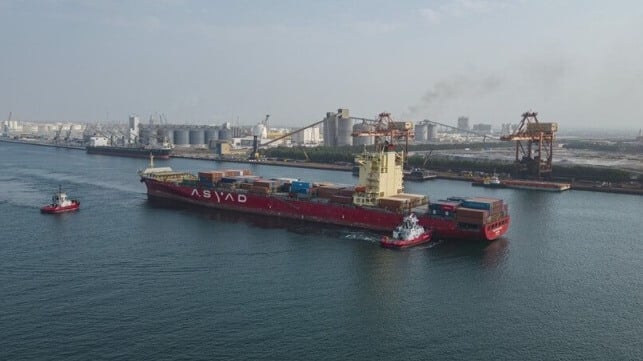Asyad Shipping Expands With Addition of 30 New Vessels

The Asyad Group, Oman’s state-owned integrated logistics group, is planning to acquire an additional 30 vessels to add to the mixed fleet operated by its subsidiary Asyad Shipping.
Asyad Shipping currently operates 22 crude tankers, 34 product tankers, 10 gas carriers, and 23 dry bulk carriers, plus five container ships on its network in the Gulf, South Asia and Southeast Asia. The fleet expansion will help extend Asyad’s offering to Japan and South Korea in the East and to Europe in the West.
Asyad Shipping already has a strong position in the LNG market, with almost all its existing carrying capacity allocated on long-term contracts, and with the fleet expansion is now also being positioned to handle Oman’s fast-growing LNG production. Oman’s gas production rose to 55 bcm in 2024, up five percent on last year’s output, and Asyad enjoys a privileged position as the national shipper. It is also well-positioned to benefit from Oman’s projected growth in green hydrogen production, powered by solar and wind energy, which is also largely forward-sold.
The expansion is budgeted for up to $2.7 billion, to be borrowed in medium-term loans from local and international banks. As part of a broader IPO program for the wider group, Asyad intends to offer 20% of the shares in Asyad Shipping on the local Muscat Securities Market in February, raising $1 billion, and then expects to pay out $150 million in dividends this year.

that matters most
Get the latest maritime news delivered to your inbox daily.
Since being founded in 2003 as part of Oman’s Sovereign Wealth Fund, Asyad has climbed steeply to be rated by Forbes as the fourth largest logistics company in the Middle East North Africa region. The announced expansion will enhance this position further.
Asyad enjoys economies of scale because of base domestic demand, and thus additional carrying trade elsewhere can be offered at better rates. The group plays on Oman’s historic sea-faring tradition, unique in the Gulf, but has not been frightened to take on international partners. Its Salalah Port is partnered with APM Terminals; Sohar Port (soon to be connected with the UAE by rail) with Hutchinson and the Port of Rotterdam; and Duqm with Consortium Antwerp Port. As distribution hubs, these ports offer the benefit of being on the direct route between Suez and Asia, saving three days’ sailing and higher insurance premiums necessitated by passage through the Straits of Hormuz. As an integrated logistics company, Asyad also offers free zone, local distribution and air cargo facilities.
